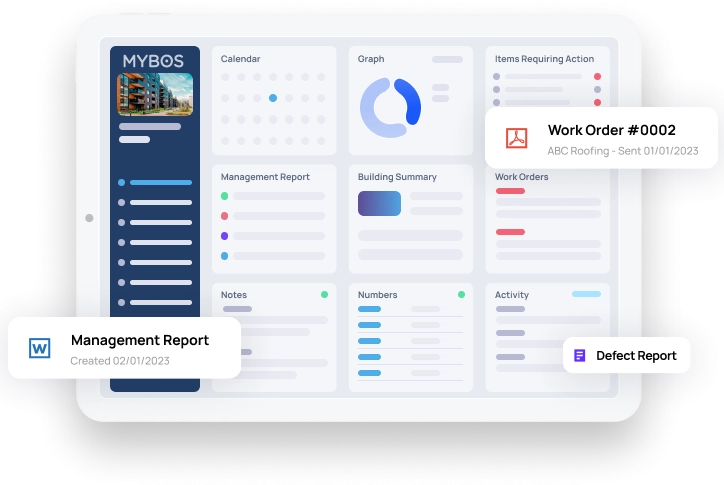
AI and Automation in Commercial Facility Management: What’s Next?
Artificial intelligence (AI) and automation are transforming industries across the board—and commercial facility management is no exception. From predictive maintenance and energy optimisation to smart security systems and autonomous cleaning solutions, these technologies are rapidly reshaping how buildings are monitored, maintained, and managed. This shift indicates a clear trend towards embracing smart facility management practices to meet the evolving demands of modern buildings and their occupants.
But as adoption grows, the question emerges: what’s next?
Recent reports from the International Facility Management Association (IFMA) indicates that organisations are using traditional AI for predictive maintenance, enhancing energy efficiency, reducing carbon footprints, improving space utilisation, and optimising cleaning schedules. AI also enhances decision-making through comprehensive analytics on consolidated facility information.
In this article, we explore the future of AI and automation in facility management, the innovations on the horizon, and how facility managers can prepare for the next phase of digital transformation:
1. The Expansion and Mainstream Adoption of Smart Buildings
Smart buildings are at the forefront of this transformation, utilising AI and IoT technologies to optimise energy consumption, enhance occupant comfort, and streamline facility operations. By integrating sensors and advanced analytics, these buildings can automatically adjust lighting, heating, and cooling systems based on real-time occupancy and environmental data.
CBRE notes that smart facilities management (FM) solutions have now been deployed across over 1 billion square feet globally, demonstrating the scalability and effectiveness of AI-driven building management systems. These solutions have been shown to reduce maintenance costs and energy consumption by up to 20%, while also improving operational reliability.
2. Predictive Maintenance and Reduced Downtime
Traditional maintenance strategies often rely on scheduled checks or reactive repairs, which can potentially lead to unexpected equipment failures and increased downtime. AI introduces a proactive approach through predictive maintenance, analysing data from various building systems to forecast potential issues before they occur.
By leveraging machine learning algorithms, facility managers can receive alerts about equipment anomalies ahead of time, allowing for timely interventions that prevent costly breakdowns. This not only extends the lifespan of assets but also ensures uninterrupted services for building occupants.
According to the Property Council of Australia, facilities managers are exploring how AI can harness extensive historical data for predictive maintenance, enabling proactive interventions that reduce downtime and extend asset life.
For those curious on hiring a facility maintenance contractor, explore our article on Top Questions to Ask Before Hiring a Facility Maintenance Contractor
3. Enhancing Energy Efficiency
Energy management is a critical aspect of facility automation, with AI playing a pivotal role in optimising energy usage. AI systems can analyse historical and real-time data to predict energy demand, adjust systems accordingly, and identify areas of inefficiency. For example, AI can determine when certain areas of a building are unoccupied and adjust lighting or HVAC systems to conserve energy. Such intelligent energy management not only reduces operational costs but also contributes to sustainability goals by lowering the building’s carbon footprint.
JLL has also reported that AI tools can create benchmark energy models for assets, allowing owners to leverage existing building data in their energy strategy. These models help identify energy-saving opportunities across portfolios without the time and cost of auditing each asset. This allows building operators to start benefiting from more advanced energy controls before performing a full audit.
4. Improving Occupant Experience
The integration of AI in commercial facility management extends beyond operational efficiency; it also significantly enhances the occupant experience. AI-powered systems can personalise environmental settings, streamline service requests, and provide real-time information to occupants.
Colliers has implemented AI technologies to monitor office occupancy and optimise space utilisation. By analysing data from Wi-Fi networks, they can determine how spaces are used and make informed decisions about office layouts and resource allocation, ultimately improving employee satisfaction and productivity.
5. Streamlining Facility Work Order Management
Managing work orders efficiently is a perennial challenge in facility management. AI simplifies this process by automating the creation, prioritisation, and assignment of maintenance tasks. By analysing data from various sources, AI can determine the urgency of issues and allocate resources accordingly.
This automation reduces response times, ensures that critical issues are addressed promptly, and frees up facility managers to focus on strategic planning. For insights into optimising work order processes, consider reading our article on how to streamline facility work orders for minimal downtime.
Looking Forward: The Future of AI-Powered Facility Management
The integration of AI and automation in facility management is not a fleeting trend, but a fundamental shift towards more intelligent, responsive, and efficient building operations. As technology continues to evolve, facility managers must adapt by embracing these tools to stay competitive and meet the growing expectations of building occupants.
For a deeper dive into upcoming trends and innovations in the field, explore our article on the future of facility management: trends and innovations to watch in 2025.
Ready to transform your facility management approach? Book a demo with MYBOS today and discover how our solutions can help you harness the power of AI and automation to optimise your building operations.








